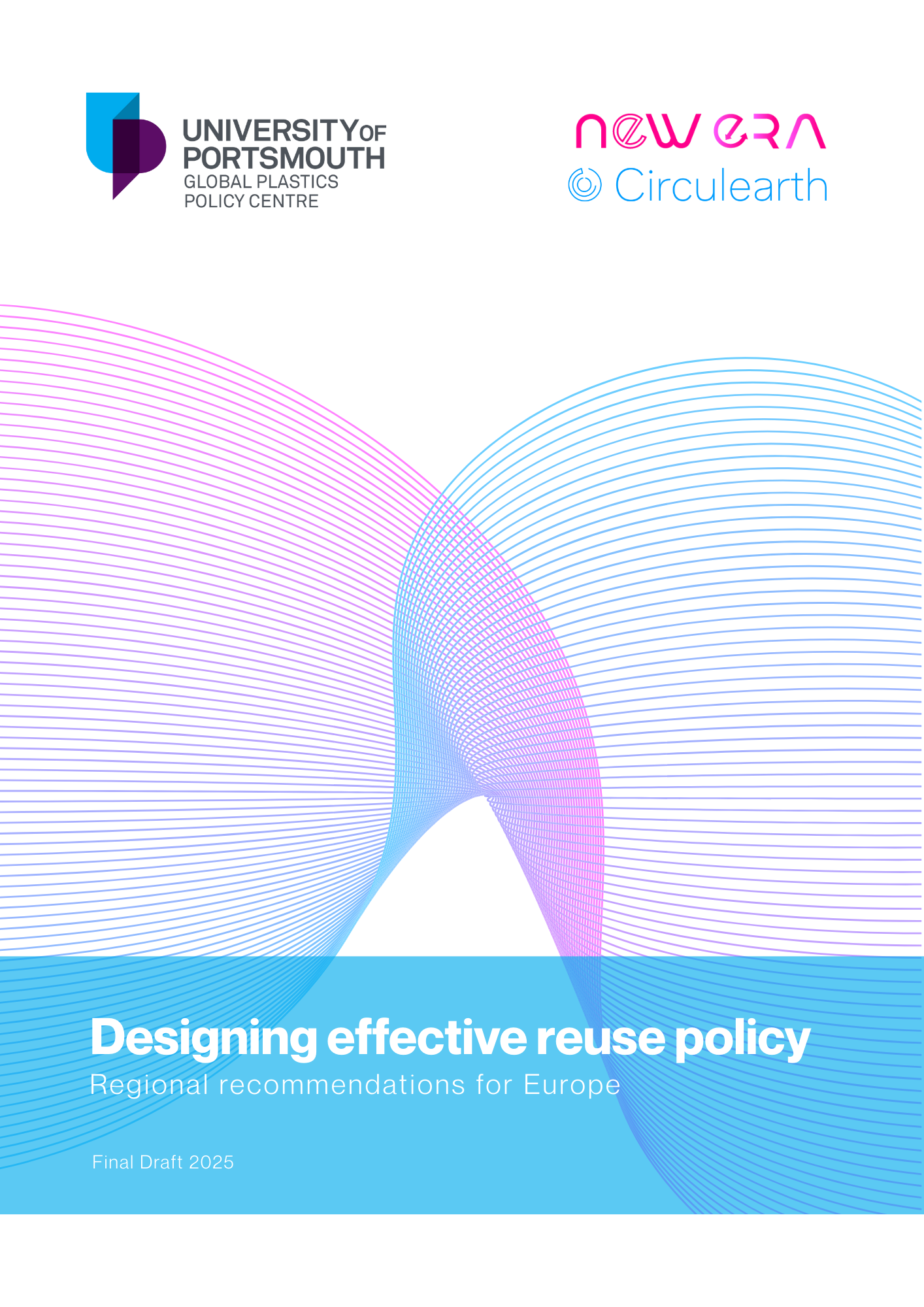Output
The Plastic Problem
We are experiencing a global plastics crisis. 11 million metric tons of plastic ends up in our oceans every year. That’s equivalent to one garbage truckload of plastic waste every minute. This is projected to nearly triple to around 29 million metric tons (or 2.5 trucks per minute) by 2040.
The plastic problemHere at the Global Plastic Policy Centre, we have found that the existing plastic policy landscape often addresses plastic products or lifecycle stages in a siloed approach that limits the effectiveness of innovative measures to tackle the plastic problem.
Systemic change and transitions towards sustainable solutions are necessary. As such, our evidence-based analysis of existing policies is needed to help inform better decision making and approaches around plastic policies.
The Global Policy Review
We’ve created a bank of independently reviewed plastics policies and initiatives using open-sourced, publicly available information. Through an analytical framework, these reviews determine the effectiveness of policies in reducing plastic pollution and we offer recommendations in light of this evidence, to enhance future policy making.
The first of its kind, this platform provides a central point for information on policy effectiveness and the barriers to plastic policy success.
The database provides information on nearly 200 plastics policies in the areas of:
- National bans
- Taxes and levies
- Consumer behaviour campaigns
- Recycling
- Waste management
- Environmental protection
- Private sector initiatives
- Extended Producer Responsibility (EPR)
- National plans and roadmaps
Case Studies
View policies by location
Latest Research Outputs
Update
Posted on: 8 September 2025
My plastics journey: from history student to plastics warrior
Undergraduate history student, Amy Gaisford (pictured right), recently completed a work experience programme with us at the Global Plastics Policy Centre. Here, Amy tells us more about her eye-opening...
Read articleUpcoming Events
FAQs
- What is the Global Plastics Policy Centre?
-
The Global Plastics Policy Centre is a Flotilla Foundation funded platform and initiative designed to provide independent analysis of plastics policies. By providing reviews of a variety of policy types, we are able to offer recommendations and the evidence base required to pursue more effective policy making. We are made up of a team of researchers and analysts at the University of Portsmouth’s Revolution Plastics Institute. Find out more on the About page.
- How are the policies reviewed?
-
Policies are compared against our evaluation framework, which covers several factors such as:
- The performance of each policy against its own objectives;
- The extent to which each policy reduced plastic pollution regardless of the stated purpose of the policy; and
- The factors contributing to policy effectiveness.
For more information see our How we analyse policy page.
- The results of one of your reviews could be updated, how do I submit further evidence?
-
We’re always looking to ensure our reviews are based on the best available evidence. Please contact us at globalplastics@port.ac.uk if you have a further evidence to submit, or if you have any questions about how you can contribute.

